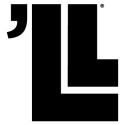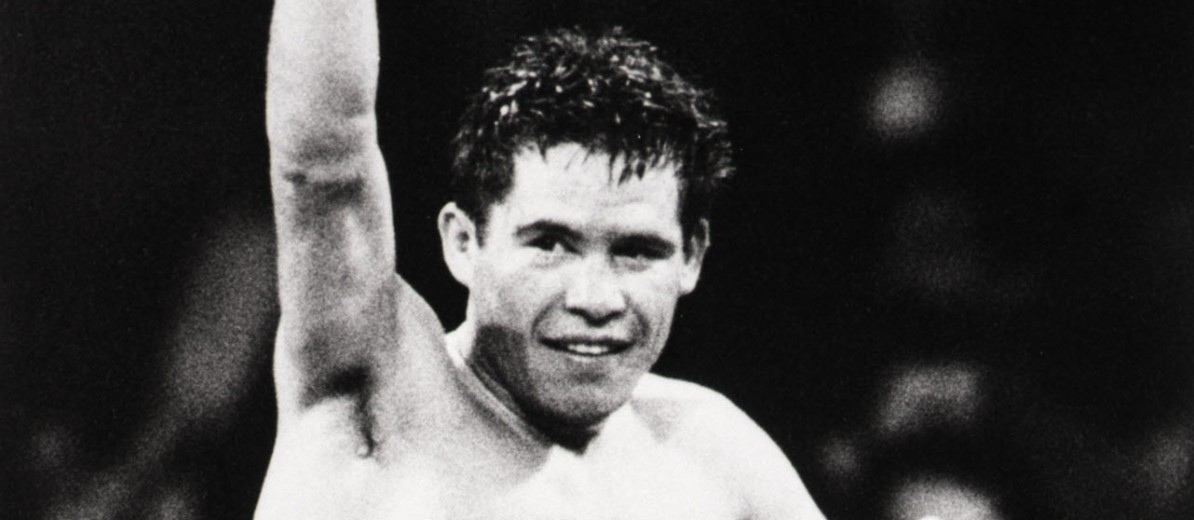Before Manny Pacquiao laid claim to the title of the
“pound-for-pound”
best boxer in the world, a pugilist from a previous generation would earn that title on the way to becoming not just a legend in the sport of boxing, but arguably the greatest Mexican fighter of all time. His success–undeniable; his iconic status in Mexico–undisputed; his name– Julio Cesar Chavez.
Born on July 12, 1962 in Ciudad Obregon, Sanora, Mexico, Julio Cesar Chavez Gonzalez began boxing professionally at the age of 18. Like many others in Obregon the Chavez family endured economic hardship which motivated Chavez to enter the ring to provide for his family. It would be the beginning of a career that spanned three decades, where he would amass a record of over 100 victories (over 80 by knockout) with only six defeats. Along the way he won six championship belts in three weight classes, ranging from Junior Lightweight to Junior Welterweight. While the numbers and championships are impressive, they do not even begin to tell his tale. His boxing style would leave an indelible mark on the sport and demonstrate the signature style of a Mexican fighter. In the ring Chavez was nothing short of a terminator employing never ending aggression that consisted of punching power and a relentless body attack from opening to closing bell. Coupled with a seemingly iron jaw, he was able to “take two just to give one” an approach that carried him to victory over world class opponents that were often technically superior to him. His list of opponents reads like a super-villains gallery out of a comic book: Meldrick Taylor, Pernell Whitaker, Hector “Macho” Camacho, Edwin Rosario and Roger Mayweather. Each man was a champion in his own right, but all were unsuccessful in their attempts to de-throne Chavez.
This signature style was never more evident than in fights against opponents Roger Mayweather and Meldrick Taylor. On May 13, 1989, in a fight nicknamed “Fury at the Forum” Chavez and Mayweather met for the second time at the Great Western Forum in Inglewood, California. Over 10 rounds, Mayweather threw everything but the kitchen sink at Chavez and visibly became frustrated when nothing worked. Eventually Chavez wore Mayweather down, so much so that Mayweather did not come out of his corner for the 11th round and lost by a technical knockout (TKO).
Chavez went on to fight Junior Welterweight champion Meldrick Taylor on March 17, 1990 in the fight dubbed “Thunder vs. Lightning.” The match would become a boxing classic and named one of the top 10 boxing matches of all time by Time magazine. Taylor was a tough, quick and slick Philadelphia fighter and former Olympian gold medalist who many believed was the next “Sugar” Ray Leonard. When they met Taylor was successful in out-boxing Chavez over 11 rounds and was ahead on a majority of the scorecards going into the final round. But Chavez never gave up on his body attack and slowly but steadily wore Taylor down. By the final round the wear on Taylor was evident and Chavez scored a knockout with just seconds left in the fight. Chavez himself would later say that Taylor was his toughest opponent and the bout a defining moment of his career.
It was the fortitude and toughness displayed in those legendary bouts with Mayweather and Taylor that cemented Chavez’s legacy in Mexican boxing lore and made him a national icon. Because of those qualities Chavez’s Mexican predecessors such as Fernando Vargas and Juan Manuel Marquez would, by their own admission, seek to emulate him. However, it was not just other fighters that admired Chavez, his influence reached into Hollywood. In 2007 the documentary J.C. Chavez chronicled the life and times of the fighter. The film marked the directorial debut of actor Diego Luna (Y Tu Mama Tambien) and was considered Luna’s passion project due to his childhood admiration for Chavez. In an interview with WENN News about the film Luna stated,
“I remember living in a country that was always in a crisis ever since I was 10. So, for me, it was interesting to tell the story of the only Mexican, who didn’t know what losing was, when the country was falling apart.”
Chavez officially retired from boxing in 2005 and now shepherds the boxing career of his son Julio Cesar Chavez, Jr. who is becoming a legitimate champion in his own right. In addition, he has various business ventures such as the newly opened restaurant in Costa Mesa, Arizona Julio Cesar Chavez Campeones and even lends his name and likeness to an energy drink bearing the same name.
On June 12, 2011, the International Boxing Hall of Fame honored Chavez by inducting him into the Boxing Hall of Fame. In his speech during the ceremony Chavez stated through an interpreter “My induction into the Hall of Fame is not for me, it’s for all of you and all of Mexico,” making official what everyone else already knows: Chavez is and will always be “El Gran Campeon.”
If you liked this article, check these out: Why Canelo vs. Chavez Jr. Matters; Is this Miguel Cotto’s Last Stand?

